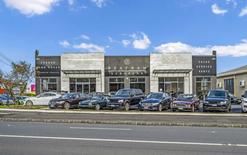Levy hike ‘threat’ to EV sales

The Motor Industry Association (MIA) warns the looming introduction of higher Accident Compensation Corporation (ACC) levies on EVs is likely to hurt sales of such cars.
Aimee Wiley, chief executive, says members are concerned at how the government’s decision to increase the levy from $42.09 to $109.05 at the start of July 2025 will affect an “already fragile EV market”.
The announcement of the extra expense for EV owners comes after the clean car discount (CCD), which offered rebates on low and zero-emissions models, was axed from January 1 this year.
From April, road user charges were also introduced to EVs and plug-in hybrids.
Wiley, pictured, explains the MIA has always urged officials to consider the broader implications of policy setting before introducing any changes, reports RNZ.
“Effective policy changes must strike a balance and consider consumer affordability and economic, social, and environmental factors affecting New Zealand,” she says.
The MIA does not support the timing for increasing the ACC levy, which forms part of the annual vehicle registration fee.
Wiley adds the MIA believes the move is premature and risks reducing consumer demand for EVs, which will hinder the industry’s ability to meet tougher carbon dioxide (CO2) targets being introduced under the clean car standard from the start of 2025.
However, she notes many EVs are cheaper now than when rebates were available as the price of technology has fallen over time.
“The messaging to the consumer has been heavily dominated by policy this year rather than features,” she tells RNZ.
“EVs are newer, safer, cleaner but it’s a new technology and that comes with hesitation for some people to want to adapt. When the ACC changes hit, that's going to have as similar impact in the short-term as road user charges on EVs did.”
Drive Electric is also unhappy the ACC levies for EVs will more than double next year, while the cost for petrol cars is only set to increase by 17.3 per cent to $49.38.
Kirsten Corson, chair, says the increase is a surprise and after other recent government policy changes “is sending a message to the market which isn't as positive as we would like”, reports RNZ.
She adds Drive Electric wants fair and equitable policies that recognise the average EV tends to be newer, safer and features fresher technology than many other vehicles in the fleet, with the average petrol car in New Zealand being 15 years old.





